CMEV’s map of election violations on the day of the Northern Provincial Council election is now live, and can be accessed here.
New violations will be added as and when they are verified and published by CMEV.
CMEV’s map of election violations on the day of the Northern Provincial Council election is now live, and can be accessed here.
New violations will be added as and when they are verified and published by CMEV.
CMEV headquarters, 21 September, 9.30 am
Manjula Gajanayake head of operations at the Centre for Monitoring Election Violence (CMEV), speaks on the ground situation on polling day.
On 20th September 2013 / 08.10h/ Northern Province/ Mannar District/ Mannar Electorate/ Pesalai UPFA party office
As reported by CMEV monitor in the area, UPFA Mannar District candidate No 6, Mr. Robert Pieris, organized dry rations to be distributed on the night of 20th September 2013.
On 20th September 2013 from 6.00 – 8.00 pm : Northern Province: Jaffna District, Electorate, Chavakachchari, Kodikamam area:
Villagers from Palavi and Katchai have reported to CMEV monitors that a large number of youths are roaming these villages. The villagers reported their fear that the presence of the youths could result in electoral violence and malpractice. CMEV urges relevant authorities to take immediate action to prevent any such violence or malpractice.
On 20th September 2013/ 11.00 a.m/ Northern Province/ Jaffna District/ Manipay Electorate
CMEV received a report of posters of UPFA candidates on the sides of the following roads; Manipay Road, Uduvil Road, Anaikoddai Road, Sangilipai Road, Maradanamadam Road, Chunnakam Road. The said posters were of the following UPFA candidates;
1. Mudiappu Remidios- candidate No. 18
2. Abdul Hameed Nafman Siras Mohamed- candidate No. 04
3. Kodeswaran Rushangan- candidate No. 12
4. Nadarajah Thamilalagan- candidate No. 14
5. Naganathi Ponnampalam – candidate No. 16
New posters of the following TNA candidates were seen:
1. Iynkaranatsan Ponnuthurai
2. Tharmalingam Sitharthan
3. Emmanuel Arnold
There were also fresh posters of Democratic National Alliance (DNA) candidates, mainly down the Uduvil Road. The candidates are:
1. Senathirajah Krishnakumar
2. Kankaratnam Loganathan
3. Sivasunthari Manokaram
Additionally it was noted that the deployment of army personnel has increased noticeably. The increase of military personnel was visible along the following roads: Manipay/ Jaffna Main road, Sangilipai Main road, Savalkaddu road and, Anaikoddai road. It was stressed that members of the military moved freely and frequently on the said roads, thus making the presence of the army felt more strongly.
On 19th September 2013 at 12.30 pm in Northern Province, Jaffna Electoral District, Kangkesan Thurai Electorate.
CMEV monitor reported that he went to Arasadi Road, Kollangalati, where he witnessed military personnel using black oil to deface posters of all candidates. Thereafter no posters were visible in the area. Whilst the military was so engaged, vehicles (registration No NP KW 1603 and CP PE4685) belonging to UPFA candidate Shiras and with posters of the candidate displayed on them, were seen at the same place.
On 19th September 2013 at 12.53 p.m: Northern Province Jaffna Electoral District, Odupidi Electorate.
As reported by a CMEV monitor in Odupidi, from the 10th of September 2013 a significant military presence has been observed in the area. On the main roads of Odupidi and on by roads, a significant number of military personnel have been deployed.
19-09-2013/ 20.00h/ Northern Province/ Mannar District/ Mannar Electorate/ Tharapurram
As reported by CMEV monitor in the area, villagers from Vellankulam and Ganeshapuram were transported from these villages to Tharapuram by UPFA supporters and given dry rations. It was noted further that the villagers were transported in 3 CTB buses. The CMEV monitor further confirms that the distribution of dry rations was organized by UPFA candidate No. 4, Mr. Abbas Abdul Rifkhan.
19-09-2013/ 20.15h/ Northern Province/ Mannar District/ Mannar Electorate/ Pesalai
As reported by CMEV monitor in the area, UPFA supporters were provided with dry rations to be distributed amongst the people of the 4th and the 8th housing colonies of Pesalai. Currently the dry rations are stored at the residences of two of party supporters identified as Rani and Stephen whose full names were not revealed for security concerns. They live down K. V. Road, Pesalai. The rations are to be distributed on the night of the 20th.
19-09-2013/ 23.15h/ Northern Province/ Mullaithivu District/ Mullaithivu Electorate/ Muliavilai
It was reported that an election meeting of the UPFA candidate Mr. Sivalingam Sathish Kumar contesting under number 03 in Mullaithivu district, was held at the garden premises of a UPFA supporter Mr. Thiyagaraja Arulvendan near the Katta-Vinayagar Kovil (Hindu temple). About 35-40 persons have attended the meeting. A villager, Mr. Kanapathypillay Dushyanthan of Mulliyawallai Central, Mulliyawallai informed CMEV about the meeting. He stated that the meeting had started around 10 pm and by the time he had called CMEV, around 11.15pm, the meeting was still going on.
19-09-2013/ 23.17/ Northern Province/ Mannar District/ Mannar Electorate/ Mannar town, Tharapurram, Puthukkudiyairuppu
As reported by CMEV monitor posters of the following UPFA, TNA, UNP and SLMC candidates, respectively were put up in the aforementioned areas:
UPFA
1. Candidate No. 04 Mr. Abdul Abbas Rifkhan
2. Candidate No. 06 Mr. Robert Pieris
TNA
1. Candidate No. 03 Mr. Irudayanathan Charles Nirmalanathan
UNP
1. Candidate No. 02 Mr. Abdul Kaseem Rahumathulla
SLMC
Candidate No. 08 Habib Mohamed Rayees
The aforementioned posters appeared mostly in the following areas: Karisal, Olaiththuduwai, Puthukkudiyairuppu, Thottaweli, and Tharapurram
19-09-2013/ 23.53h/ Northern Province/ Vavuniya District/ Vavuniya Electorate/ Cinna Cippikulam, Cheddikulam
As reported by CMEV monitor, UPFA candidate No 7, Mr. Mohideen Kani Sego Munajithu and around 8 to 10 supporters of the UPFA have done house-to-house visits and handed cash to residents in the Cinna Cippikulam village within the Cheddikulam DS Division in Vavuniya. The report also indicates that the campaigning was carried out in the vehicle bearing registration number NP-JP 7100.
20-09-2013/07.39h/ Northern Province/ Jaffna District
UPFA candidate Mr. Angajan Ramanathan still continues his campaigning via short messaging system, conducted through a message centre identified by the number +46701326101. This was reported by a CMEV monitor who received the text message.
Download PDF here.
Mr. Mahinda Deshapriya,
Commissioner of Elections,
Elections Secretariat,
P.O. Box 02, Sarana Mawatha,
Rajagiriya, 10107.
18th September 2013
Dear Sir
Request to Make a Public Statement Ensuring the Secrecy of Ballots Cast in the Forthcoming Provincial Council Elections
As you are aware, there have been several reports of incidents of voters being told by various individuals that ballots cast at the forthcoming election- including party preference and candidate preference – can be traced. This practice has been especially prevalent in the Northern Province and specifically in remote villages such Thirunagar, Barathipuram and Selvanagar in the Killinochchi District.
Ensuring the secrecy of ballots is an essential prerequisite for the conduct of a free and fair election as it minimises the possibility of voters being influenced. As you will appreciate in the context of allegations of voter buying and intimidation, ensuring that individuals are able to cast their vote freely and without compulsion is of paramount importance.
As such, we call on you to make a public statement to the effect that ballots are specifically designed to prevent anyone from linking a specific voter to a ballot and that there is no possible way for another person to decipher to which political party and candidate(s) a particular person cast his/her ballot.
We urge you to request heads of all print and electronic media institutions- including state owned media institutions- to give to such statement the widest possible coverage in both the Sinhala and Tamil languages.
We will be releasing this letter to the media in the public interest.
Please be assured of our cooperation
Thanking you
Yours sincerely
Dr. Paikiasothy Saravanamuttu – CMEV
Mr. Rohana Hettiarachchi – Paffrel
Mr. Keerthi Tennekoon – Caffe
Mr. Shan Wijetunge – Transparency International, Sri Lanka
Download PDF here.
20th September 2013
Summary:
There is widespread disillusionment with the election process, which may lead to low voter turnout. Unacceptably long distances to polling center’s will deter others, since even where buses are being provided these services will be minimal and are not free. The Election Commissioner’s Office is doing its best under difficult circumstances but is handicapped by an outdated system in need of reform, compounded by inadequate funds. Yet, the systematic misuse of state resources, notably of the Ministry of Economic Development, to benefit pro-government candidates, and the deliberate violation of election law through combining development activities with election campaigning have irreparably flawed the democratic process in Mullaitivu District. Military interference in the electoral process is mostly indirect, though incidents of coercion to attend meetings of UPFA candidates have been reported.
Description:
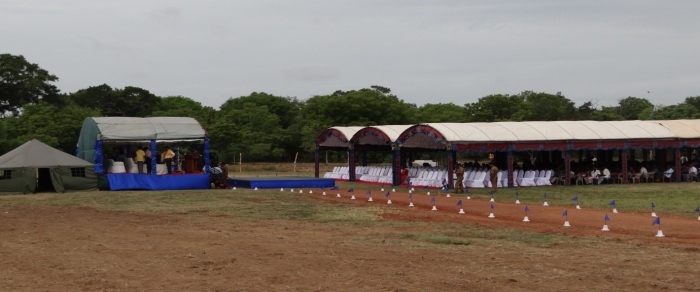
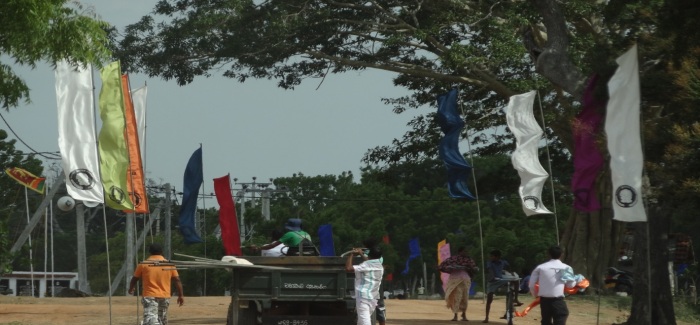
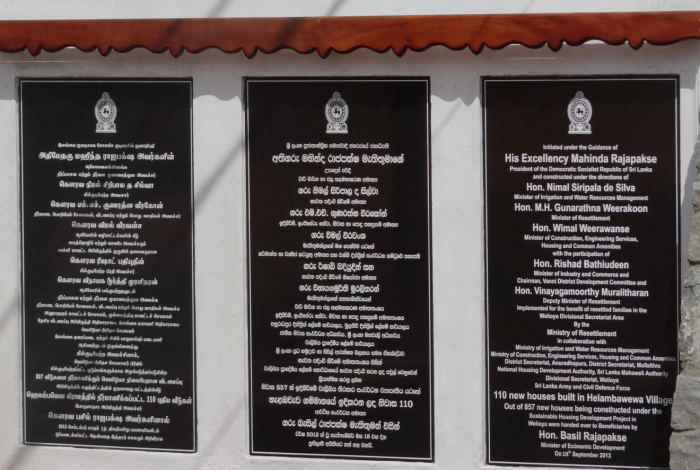
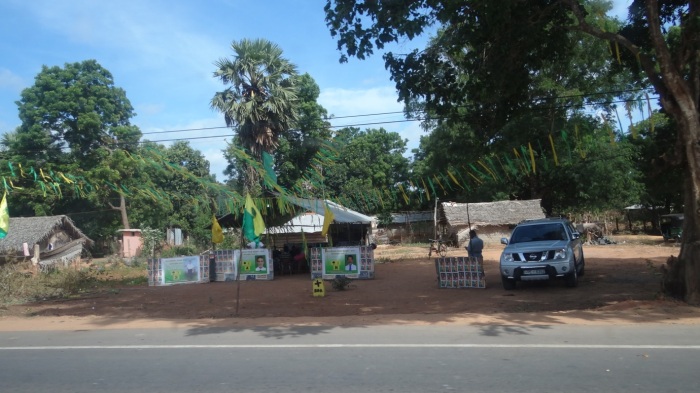
However, the overall picture of the Mullaitivu District is one in which the UPFA candidates are free to violate any and every regulation with impunity. On 19 Sep 2013, CMEV observed UPFA candidate No 6 campaigning in Mullaitivu town itself.
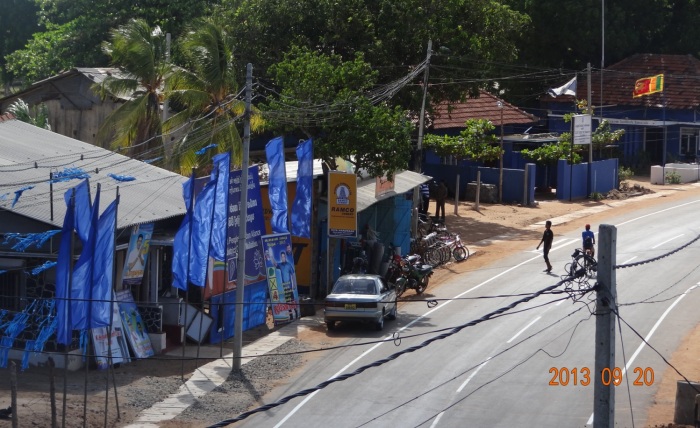
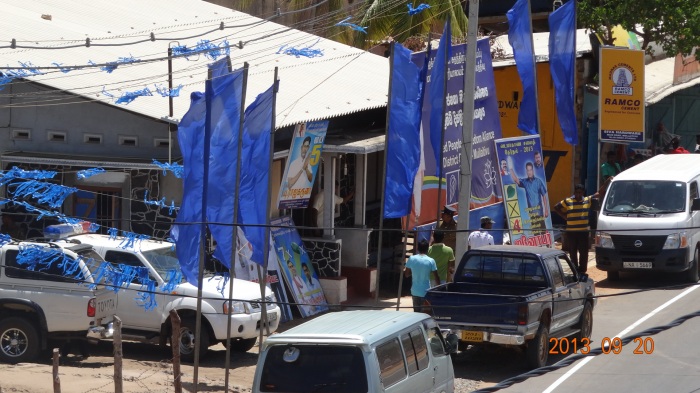
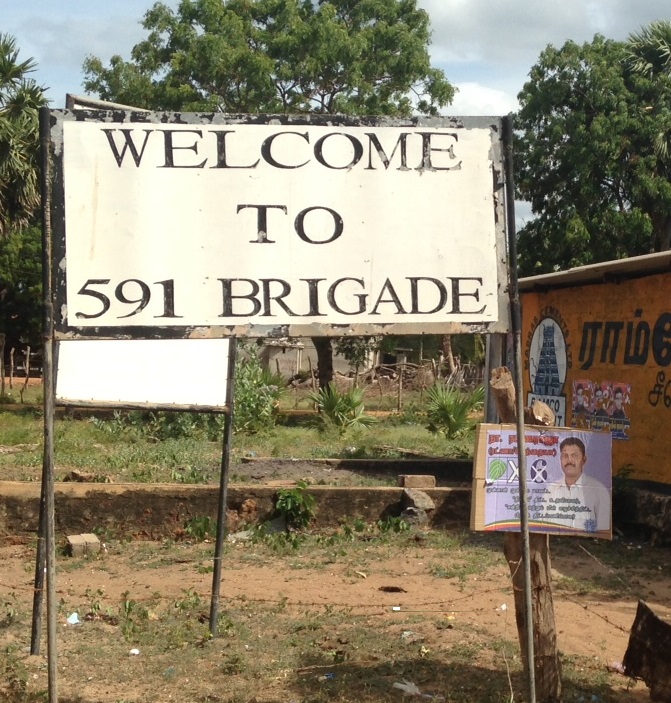
Download PDF of report here.
On 20th September 2013, Chulipuram, Vadukkodai Electorate, Jaffna District, Northen Province. As reported by CMEV Field Monitor, the residence and campaign office of Ananthi Sasidharan (TNA Candidate No1– Jaffna District) in Tholipuram in the Chulipuram area was attacked, allegedly, by a group of military personnel at around midnight on 19th September. Some of the attackers were reported to have spoken in Sinhala and were also identified to CMEV as military personnel, on account of their clothing. Nine (09) persons including lawyer Sugash who went to assist the victims, were injured in the incident. Ms Sasidharan was able to escape the attack with her children. When CMEV contacted the Jaffna Police Headquarters around 12.45am, the Police told CMEV that they were not aware of such an incident and directed CMEV to the Vadukkodai Police. However once CMEV contacted the Vadukkodai Police around 01.05am, they said that they had been told that the Chulipuram area is not in their division. However when contacted again, the police informed CMEV that a team of police officers had been deployed to the location. As at 8am, the police also informed CMEV that no official complaint of the incident has been lodged with them. CMEV is particularly concerned about the alleged involvement of the military as the perpetrators of this attack. Throughout the campaign, there have been a number of allegations of threat and intimidation of voters and electioneering on behalf of particular candidates by military personnel in uniform and by Military Intelligence and Civil Defence personnel. Since the campaign concluded at midnight on Wednesday 18 September, the number of such incidents reported to CMEV has increased CMEV unreservedly condemns any military involvement in the electoral process- the basic mechanism of choice and change in a functioning democracy. Such involvement seriously undermines the integrity of the process and in the context of this election, gravely undermines reconciliation and unity in the country. CMEV calls upon the Election Commissioner and all relevant authorities to ensure that this involvement ceases and that all allegations in respect of incidents of violence and malpractice are investigated and the culprits brought to book. The protection and the strengthening of the institutions and processes of electoral democracy in the country, demand no less. Download PDF of report here. Download PDF in Tamil.


September 18 2013, Colombo, Sri Lanka: The main election observation missions in Sri Lanka, including the CMEV wrote a joint statement addressed to the Commissioner of Elections with a request to make a public statement ensuring the secrecy of ballots cast in the forthcoming Provincial Council Elections.
Click here for to view or download the statement.